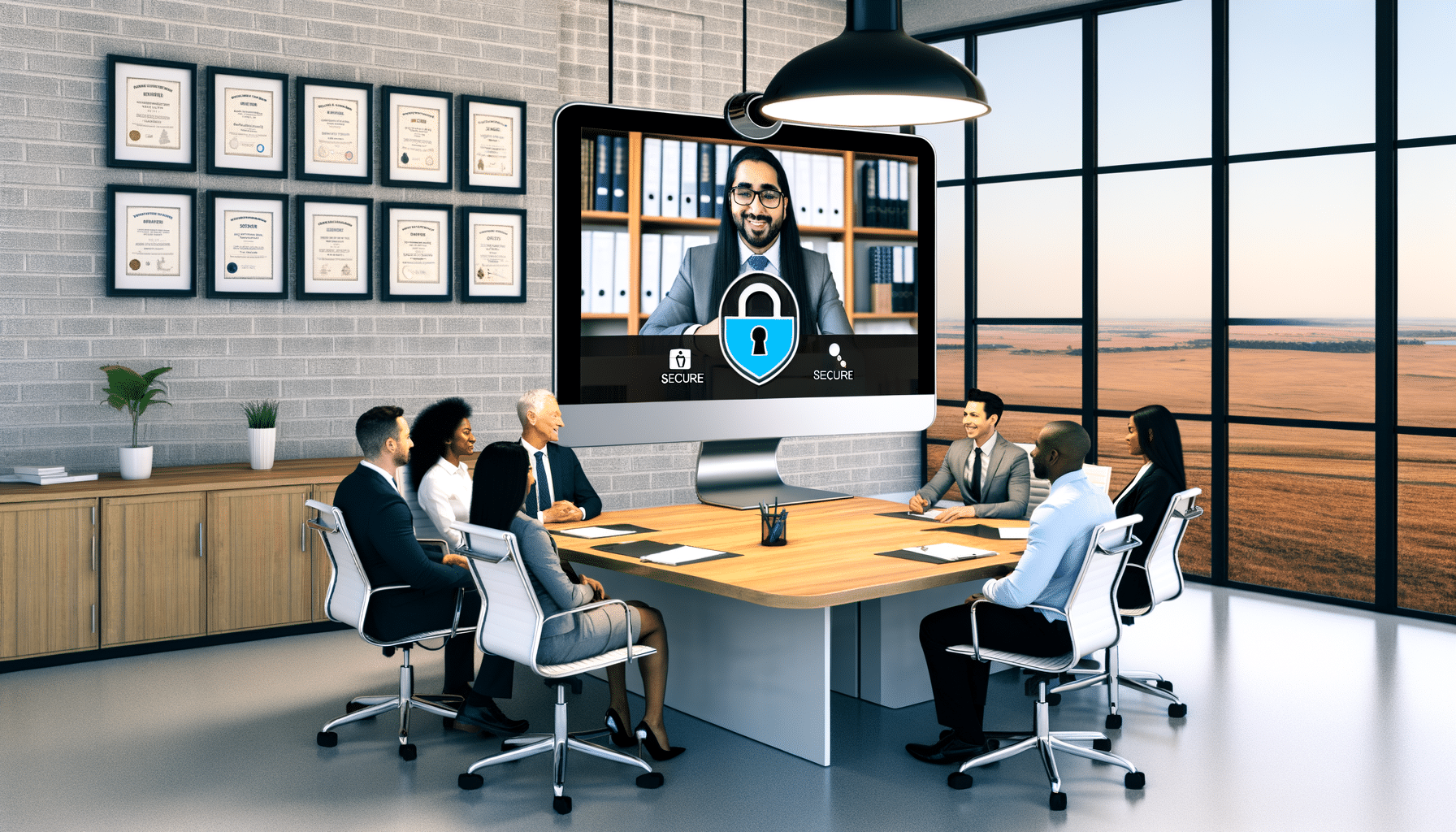- Remote Collaboration
- October 29, 2024
How to Implement Secure Legal Video Conferencing

Introduction
Navigating the intricacies of legal proceedings has always been a challenging endeavor, and with the advent of digital transformation, the landscape is continually evolving. Today, one of the most significant shifts has been towards remote communication, and legal video conferencing is at the forefront of this change. As a founder of RecordsKeeper.AI, I often encounter concerns about maintaining security while leveraging these modern conveniences. With the right strategies, it is entirely feasible to conduct secure and compliant video conferencing in legal contexts, transforming traditional practices into a streamlined, efficient process.
The Importance of Secure Legal Video Conferencing
For legal professionals, the significance of security in digital communications cannot be overstated. Legal video conferencing offers unprecedented flexibility and efficiency, yet it also poses substantial challenges regarding privacy and confidentiality. Sensitive discussions, including client consultations, deposition hearings, or settlement discussions, require robust measures to protect against unauthorized access or data breaches. Implementing strong security protocols is not merely advisable; it is mandatory for maintaining compliance with legal standards like GDPR and HIPAA.
Key Security Challenges in Legal Video Conferencing
Identifying and addressing the common security challenges is essential for safeguarding your communications. Here are some areas where vulnerabilities may arise:
- Data Encryption: Without end-to-end encryption, video calls can be intercepted, risking exposure of confidential information.
- Access Controls: Insufficient access controls can enable unauthorized participants to join calls, compromising client confidentiality and violating ethical guidelines.
- Recording Storage: Improper storage or unregulated access to recorded sessions can lead to unauthorized data exposure.
- Platform Vulnerabilities: Using outdated or insecure platforms can expose conversations to cyber threats and breaches.
Implementing Best Practices for Secure Legal Video Conferencing
To overcome these challenges, legal professionals should employ a multi-layered approach to security, integrating advanced strategies aimed at protecting their communications.
1. Choose a Secure Platform
Selecting the right video conferencing platform is the cornerstone of secure legal communications. Platforms that offer end-to-end encryption, integrated authentication mechanisms, and regular security updates should be prioritized. Ensure the platform complies with the necessary regulations of your jurisdiction to prevent potential legal liabilities.
2. Implement Strong Access Controls
Controlled access is critical in legal settings. Use password-protection for meetings, enable waiting rooms to screen participants, and restrict call entries to invited individuals only. Implementing user authentication measures, such as two-factor authentication, can add an additional security layer.
3. Encryption is Key
End-to-end encryption ensures that only the communicating users can read the messages, providing a crucial protection level for legal video conferencing. This prevents unauthorized access during transmission and guards against interception by third parties.
4. Secure Storage and Data Handling
If meetings are recorded, it is imperative to store them in a secure, encrypted format. Platforms with secure data rooms, akin to those offered by RecordsKeeper.AI, can protect and monitor access to recorded sessions, ensuring that sensitive data remains confidential.
5. Conduct Regular Security Audits
A proactive approach to security includes conducting regular audits of your video conferencing setups and practices. By consistently reviewing meeting protocols, participant access logs, and the compliance status of your platform, you maintain a robust defense against emerging threats.
Ensuring Compliance with Legal Standards
One of the core components in secure legal video conferencing is adherence to legal and ethical standards. Compliance is not only about following laws like GDPR or HIPAA; it encompasses respecting confidentiality agreements, ethical duties to clients, and the jurisdictional requirements you operate within. Documenting consent from clients for recording and ensuring their understanding of the security measures in place builds trust and reinforces these standards.
Conclusion
In the ever-evolving landscape of technology, adapting and implementing secure legal video conferencing practices is paramount for legal professionals seeking to protect client confidentiality and uphold compliance mandates. Leveraging advancements in AI and blockchain technology provides a solid framework to secure communications. As I’ve experienced with RecordsKeeper.AI, integrating these technologies enhances both security and efficiency, allowing professionals to focus on their core competencies. For those who wish to delve deeper into optimizing their record management, I invite you to explore RecordsKeeper.AI to transform your practice into a model of modern efficiency and security.
Toshendra Sharma is the visionary founder and CEO of RecordsKeeper.AI, spearheading the fusion of AI and blockchain to redefine enterprise record management. With a groundbreaking approach to solving complex business challenges, Toshendra combines deep expertise in blockchain and artificial intelligence with an acute understanding of enterprise compliance and security needs.
Archives
- December 2024
- November 2024
- October 2024
- September 2024
- August 2024
- July 2024
- June 2024
- May 2024
- April 2024
- March 2024
- February 2024
- January 2024
- December 2023
- November 2023
- October 2023
- September 2023
- August 2023
- July 2023
- June 2023
- May 2023
- April 2023
- March 2023
- February 2023
- January 2023
- December 2022
- November 2022
- October 2022
- September 2022
- March 2019
Want to get more content like this?
Signup to directly get this type of content to your inbox!!
Latest Post
Organizing External Auditor Access
- December 22, 2024
Document Control in Manufacturing Plants
- December 21, 2024
Handling Rush Financial Report Requests
- December 20, 2024
Managing Record Access After Staff Changes
- December 19, 2024





